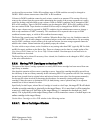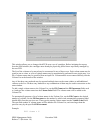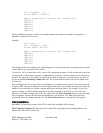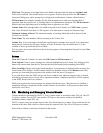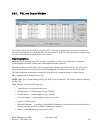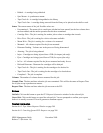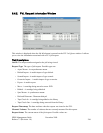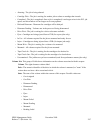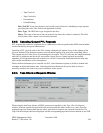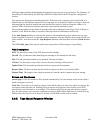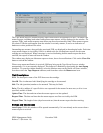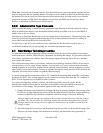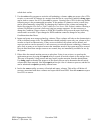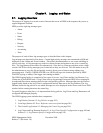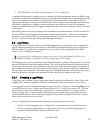
• Tape Check-In
• Tape Check-Out
• Uncommitted
• Unload Pending
Drive Pool ID. If non-zero the drive pool id will restrict this drive's scheduling to tape requests
specifying this value. This field is not applicable for disks.
Drive Type. The HPSS drive type assigned to the drive.
Mover. The name of the mover that owns the device where the volume is mounted. This field
will be blank if the volume is not currently mounted.
8.6.3. Canceling Queued PVL Requests
PVL requests that cannot be completed due to a hardware or software problem that HPSS cannot handle
can be canceled by the system administrator.
Canceling a PVL job will result in the PVL issuing a dismount job request if any of the volumes in the
job were mounted. The dismount request causes an unload request to be sent to the controlling Mover.
This request may fail if the device is performing an I/O transfer. The PVL will retry the unload command
until the I/O completes and the device reservation is freed. Once a volume has been successfully
unloaded, all I/O operations directed to the device will fail. Cancelation should therefore be done only
after careful consideration of its consequences.
When a deferred dismount job is canceled, the PVL issues dismount requests to all drives loaded with
cartridges in deferred dismount state. Canceling a deferred dismount job can be done as often as
necessary and does not result in any errors elsewhere in the system.
8.6.4. Tape Check-In Requests Window
When using the shelf-tape feature of HPSS, operators are notified via the Tape Check-In Requests
window of mount requests for tapes which are stored outside the robot (such as in a vault). Once the
requested tapes are inserted back into the robot, tape check-in requests are removed from the list. If a
Tape Check-In Request has been displayed, and the corresponding tape has not been checked in, the PVR
HPSS Management Guide November 2009
Release 7.3 (Revision 1.0) 288



